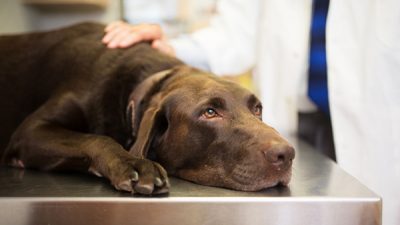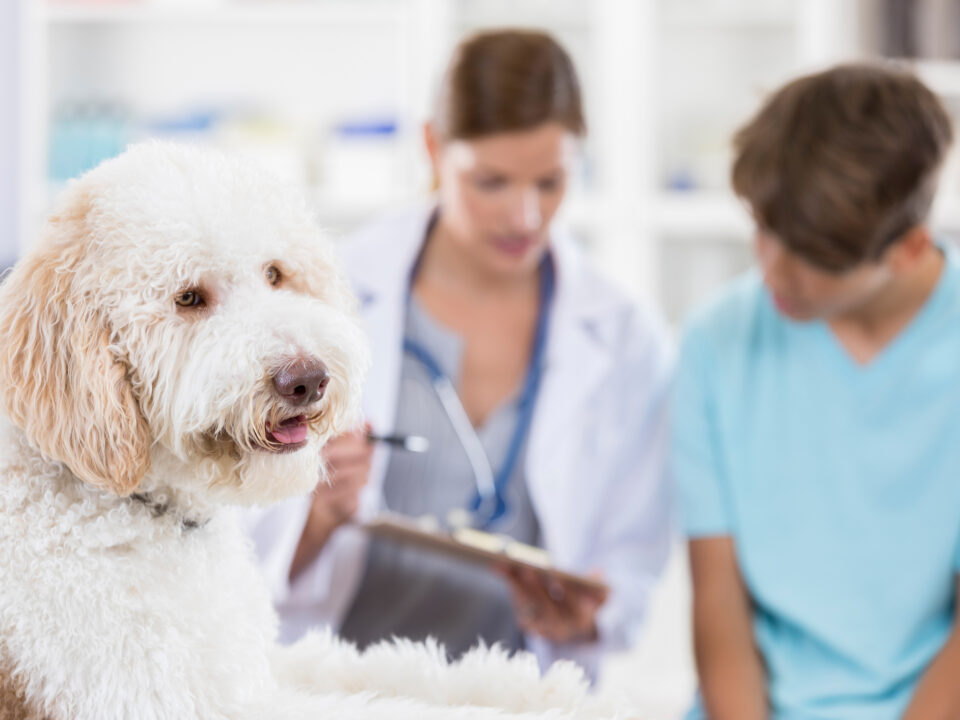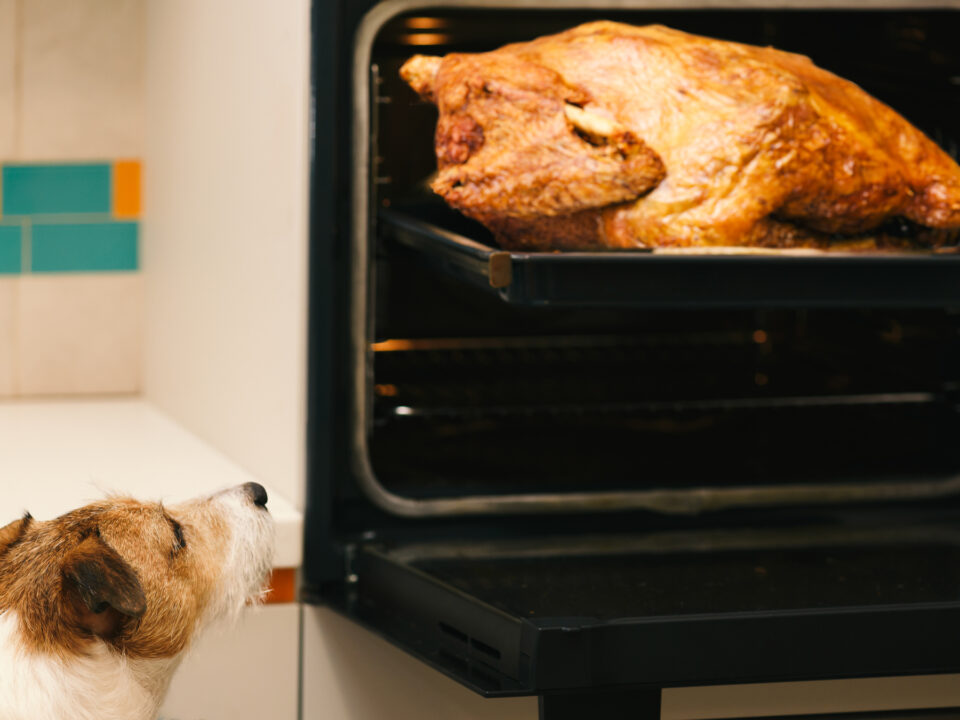Dog Kidney Problems in Sewell, NJ: What You Need to Know

5 Benefits of Spaying or Neutering Your Pet in Sewell, NJ
June 15, 2020
Sewell, NJ Cat Owners: Why Is My Cat Losing Weight But Still Eating?
August 25, 2020What Do Your Dog’s Kidneys Do?
The kidneys act as a filtration system for the blood. They filter and rid the body of toxins and waste products, and these waste products are excreted in the urine. The kidneys also regulate phosphorus and calcium levels, which are important in the formation of Vitamin D.
They also regulate blood pressure, and make a hormone called erythropoietin, which is a hormone that signals the bone marrow to make red blood cells. When a dog’s kidneys don’t function as they should, toxins can build up in the bloodstream and your dog will show symptoms and can become very ill.
What Are the Symptoms of Kidney Problems in Dogs?
If your dog is lethargic, drinks excessively, is not eating much and urinates frequently, call your veterinarian right away. These symptoms may be due to other causes, so it’s best to have your veterinarian run some diagnostics in order to reach a diagnosis. Urinary tract infections, diabetes, tick-borne diseases, liver disease, pancreatitis, and other illnesses can cause the same symptoms.
It’s always best to have your veterinarian conduct tests and an exam first, but below are listed some symptoms of kidney problems in dogs, and if you notice any of these symptoms, schedule an appointment with your vet immediately.
- Increased drinking, or excessive thirst
- Increased urination
- Vomiting
- Weight loss
- Decreased appetite
- Lethargic or listless
- Chemical odor of the mouth
- Blood in the urine
- Ulcers in the mouth and along the gums
- Pale gums
What Causes Kidney Problems in Dogs in Sewell, NJ?
There are two types of kidney problems in dogs, acute and chronic. Acute kidney failure happens abruptly, and signals a decline in function in over a period of days.
Acute kidney failure can be as a result of ingesting a toxin such as antifreeze or rat poison, or a sign of tick-borne diseases, leptospirosis, pancreatitis, or the ingestion of certain medications or tainted foods. Other causes could include a unrinary obstruction, which causes decreased blood flow and oxygen delivery to the kidneys.
Chronic kidney disease (CKD) progresses slowly over a period of time and affects mostly older dogs. It’s causes often include an underlying illness, such as cancer, diabetes, autoimmune diseases, Cushing’s or Addison’s disease, or genetic factors. CKD can also be caused by dental disease and infection, when bacteria from the mouth enter the bloodstream and place stress on the kidneys.
What If My Dog Is Diagnosed with Kidney Problems?
In the event that your dog is diagnosed with kidney disease, it matters whether it’s acute onset due to exposure to a toxin, or due to chronic disease.
With acute cases, your veterinarian may recommend a blood chemistry and complete blood count (CBC) test, and clotting panels to determine organ function (particularly kidney function) and to rule out infection. Blood chemistry results for BUN (blood urea nitrogen) and creatinine (a measure of renal elimination) are good measures of kidney function.
When renal function decreases, the blood creatinine concentration increases, accompanied by greater levels of urea and waste in the blood, and is known as as azotemia.
Depending on the diagnostic results, in acute cases, your veterinarian may recommend hospitalization on intravenous (IV) fluids in order to flush the kidneys, as well as recommend supportive care and other therapies.
In chronic cases, your veterinarian may also recommend hospitalization on IV fluids (depending on the diagnostic results), or other therapies such as changes in diet and medications.
What Can I Do If My Dog Has Kidney Problems?
If your dog has been diagnosed with kidney problems, your veterinarian will propose a treatment plan. In many chronic cases, lose of appetite is a key issue.
Getting a dog with renal issues to eat is always a challenge. Dogs with kidney disease are typically nauseous due to toxins accumulating in the bloodstream, so it can be a challenge to come up with tempting things that your dog may like.
You can offer your dog such tempting foods as egg whites, small amounts of lean chicken, beef, or fish, cottage and ricotta cheeses, or hard-boiled eggs. Your veterinarian will most likely advise a diet lower in protein since a low-protein diet puts less of a stress on the kidneys.
There are several prescription veterinary renal diets available on the shelf, and your veterinarian would be happy to offer recommendations. If your dog is suffering from pancreatitis or liver disease, your veterinarian will recommend feeding a low-fat diet that is gentler on the GI tract, but still tasty. Offering frequent small meals will also help.
Depending on your dog’s diagnosis, your veterinarian may recommend medications as well, and some may be appetite stimulants to get your dog to eat.
Administering medications that need to be given with food to your dog who isn’t that hungry can be challenging, so try to be creative. You can hide pills and medications into strong-smelling foods like peanut butter, cheeses, tiny pieces of meat, or cream cheese.
How Can Kidney Problems be Prevented?
It’s always a good idea to keep your household and property free of items and chemicals that can seriously harm your dog, and damage hr kidneys.
Providing fresh, clean water at all times is of course essential, and it’s also important to ensure that your dog has a well-balanced diet and gets plenty of exercise and attention. Providing proper dental hygiene and regular check-ups with your veterinarian is also vital in preventing dental disease.
What If My Dog’s Kidney Problems Go Untreated?
If left untreated, kidney problems in dogs can be potentially life-threatening, and may require immediate hospitalization. Acute kidney disease can be life-threatening, and seeking immediate veterinary care is recommended.
On the other hand, chronic kidney failure is an irreversible loss of all of the kidney’s functions, and although it occurs mostly in older dogs, it can occur in animals of all ages. Chronic renal failure is irreversible and may have been present in your pet for months to years before the time of diagnosis.
Unfortunately is no cure for chronic renal disease, but it can be successfully managed with proper nutrition and other therapies. Recent studies in dogs and cats have shown both a reduction in the complications associated with renal failure, and an increase in life expectancy by feeding low-protein renal diets.
Nutritional management of kidney disease is an important part of treatment, and must meet the patient’s nutrient and energy requirements, as well as alleviate the clinical signs and slow the progression of the disease.
Depending on what your veterinarian suggests, and what diagnostic tests show, specific recommendations regarding dietary therapy will vary from dog to dog. Chronic renal disease does progress over time, and frequent check-ups with your veterinarian are very important in managing the disease and keeping your pet as comfortable as possible.




